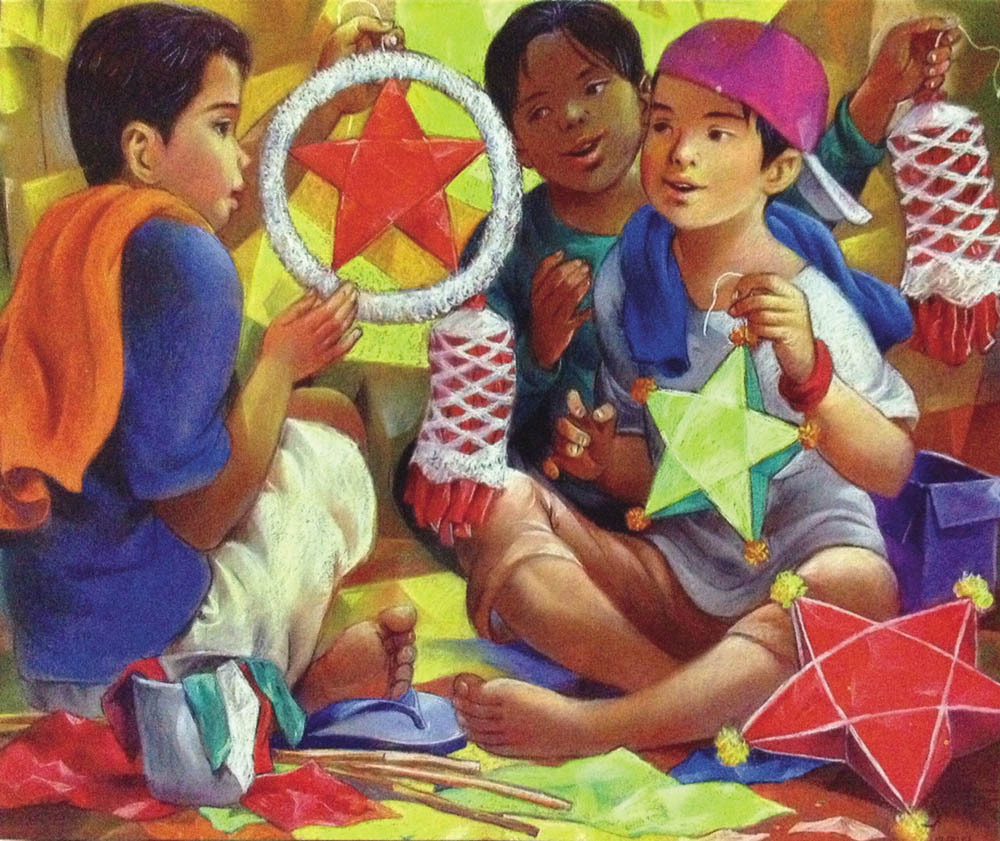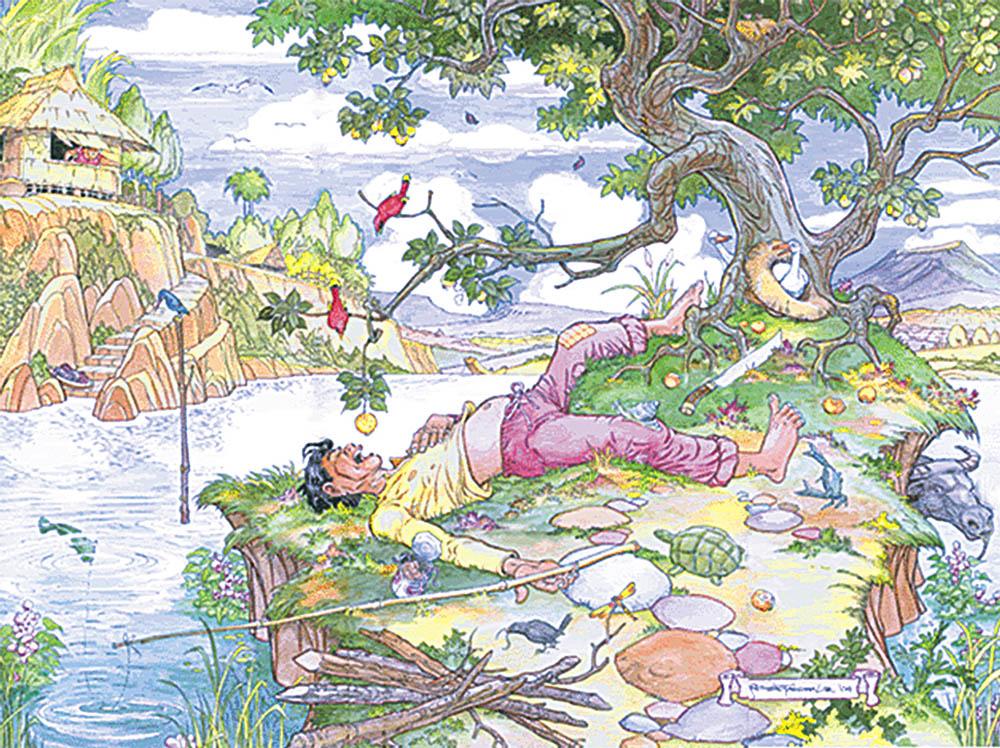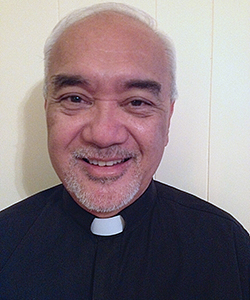Holidays & Holy Days
Are the meanings and values that these days provide us with embodied in our lives?
The Rev. John A.H. Tomoso †

When you hear the word holiday, what comes to mind? If you’re like most people, shopping, parties, church services, football and other sports, oh, and then there is shopping, parades, a day off, sleeping longer and staying in bed. The truth is in my opinion, that many holidays are becoming so commercialized that the original meaning for the holiday, many of which were established to honor important people and cherished traditions are in danger of becoming trivialized or unimportant, with their original meaning and value hidden behind less socially redeeming intentions, with traditions becoming unimportant and lost to our younger generations.
Traditions perform an important role in our community. Tradition contributes a sense of comfort and belonging. It brings families together and enables people to reconnect with friends. They allow culture and cultural practices and customs to be passed on to younger generations. Tradition enables us to showcase many good things that add emotions, beauty, joy, celebration, equity and a sense of fulfillment to our relationships and society. Tradition can cultivate a sense of “unity in diversity” and an appreciation for the differences that a multi-cultural, multi-ethnic community can bring to the fore.

With holidays becoming commercialized, even trivialized, we can be afraid of offending people that we can ban any symbol with the slightest religious connection from our public spaces. In our consumer-driven, profit-motivated economy, employers often demand that their retail employees literally abandon their family dinners to return to the store in time for that special sales promotions, sometimes called “Midnight Madness, Sales Extravaganzas, Shop Till You Drop” events. Of course, we consumers, avowed shoppers that we are, who are looking for bargains, perhaps demand such sales events. Is this the way to spend a holiday?
Do you remember the true meaning and value of holidays? For instance, Memorial Day has morphed from remembering our fallen soldiers to the unofficial beginning of summer. Labor Day’s role in recognizing the achievements of organized labor now just marks the end of summer and a return to school. Veterans Day is honored as a day off from work but, more and more, not the day to commemorate the great sacrifice of soldiers who died in battle that we might enjoy the freedoms, that more than often than not, we take for granted.
Traditions represent a critical part of any culture. They help form the structure and foundation of our families and our society. They remind us that we are part of a history that defines our past, shapes who we are today and who we are likely to become. Once we ignore the meaning of our traditions, we’re in danger of damaging or even destroying the very foundation of our identity as a people, as a community, as a society. Thus, holidays, are important to fostering and nurturing our traditions.
Unfortunately, today’s seeming indifference towards holidays and Holy Days, and the traditions they represent and celebrate has negative consequences for all of us. Do we see, right here on Maui, how many people don’t treat or celebrate holidays like they once did.
Perhaps we have a whole generation, now, who don’t know the holidays and have totally forgotten the traditions surrounding them. Kababayan, are we losing the knowledge of and respect for our culture and cultural traditions as we make our holidays less important, less meaningful? Think of it, family meals around the table have been reduced to eating fast and around the TV. Sporting events are scheduled on Sundays; assuming that Sunday is still a day, a “holy day,” a church day and on holidays like Mothers’ Day and Fathers’ Day. Aren’t our children, in a real sense, trading “game day” for quality family time. Reading before bedtime has given way to “vegging” in front of the TV, so that parents have their downtime. I believe holidays help build and nurture community and are conduits of cultural learning and add value and meaning to the community and cultures we share.
So that we can combat indifference, let’s look at how holidays and Holy Days contribute to the building of community, culture and tradition:
• Tradition contributes a sense of comfort and belonging. It brings families together and enables people to be in relationships and live in neighborhoods and communities.
• Holidays reinforce values such as freedom, faith, integrity, a good education, personal responsibility, a strong work ethic, and the value of being selfless, including learning about what took place in the past (history) to give rise to the present day.
• Tradition, and the holidays that commemorate traditions, provides a forum to showcase role models and celebrate the things that really matter in life.
• Holidays, and the traditions they commemorate and celebrate, offer a chance to say “thank you” for the contribution that someone has made.
• In this country, holidays and traditions enable us to showcase the principles of our Founding Fathers, celebrate diversity, and the communities we live in; helping to unite us as a country, multi-culturally.
• Holidays offer us excellent contexts for meaningful pause and reflection, even continuing to be the Holy Days that help us to celebrate the levels and dimensions of our spiritual lives, giving rise to faith that can be expressed daily.

Holidays and Holy Days give meaning and value to our lives. They give our living in and sense of community meaning and value, ways we relate to one another. I don’t think we want to take each other for granted because this would reduce how we relate to one another to inappropriate behaviors, selfish attitudes and being in pursuit of trivial things; things not essential to how we related to one another, forgetting that we share a quality of life. Yes, holidays and Holy Days help nurture a quality of life among us all. But we have to know what they are and why we have them. Kababayan, let’s not take them for granted. If we do, the result will be that our beliefs, values and true meanings of life will get diluted and, over time, we will forget important events, important people, and important cultural understanding.
So, holidays and Holy Days are important. They are not just excuses for a day off or to “veg out.” When a holiday comes along, know why we have it on the calendar. When a Holy Day shows up on the calendar, live it as if your spiritual life is more important than anything you can do physically. I think holidays and Holy Days give us the opportunity to not allow apathy and ignorance overshadow our traditions, our values and our meaningful pursuit of life. I know that holidays and Holy Days give me great satisfaction and a sense of accomplishment and gratitude. So, the next time you celebrate a holiday, or a Holy Day, remember that your responsibility, even your obligation, is to mark the true meaning of the day.
